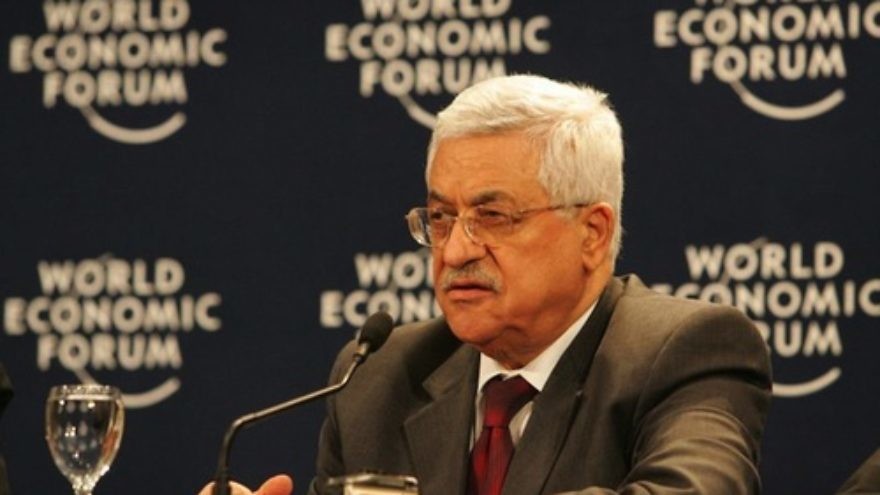Palestinian Authority leader Mahmoud Abbas reiterated this week that given the Trump administration’s blatantly pro-Israel policies, the United States cannot claim to be an impartial mediator in the Israeli-Palestinian peace process.
Palestinian officials told Israel Hayom on Wednesday that Abbas is trying to put together a strategic response to America’s pro-Israel bias, saying that Ramallah’s position is now based on three resolute “refusals” with respect to international moves.
First, the P.A. plans to remain steadfast in its refusal to resume diplomatic relations with Washington. Abbas will not meet with U.S. Special Representative for International Negotiations Jason Greenblatt or any other White House envoy.
Second, it refuses to accept the Trump administration’s Middle East peace plan and will continue to leverage the Arab world’s objection to U.S. President Donald Trump’s Dec. 6 recognition of Jerusalem as Israel’s capital. In the weeks following that dramatic announcement, the United States tried to convince allies Saudi Arabia, Jordan and Egypt to publicly support the move, but Abbas was able to undercut these efforts.
And third, the Palestinians will reject any U.S. or European pressure to shelve their diplomatic onslaught against Israel.
The P.A. has declared a “diplomatic intifada” against Israel and has appealed to numerous international bodies for membership or recognition in the hope of pursuing anti-Israel moves in the international theater.
Abbas leveled unprecedentedly harsh criticism at the American president following his recognition of Jerusalem as Israel’s capital. Palestinian officials said the diplomatic rift between Ramallah and Washington will continue until Trump backtracks on the move.
Over the past few weeks, the U.S. State Department has engaged in a series of gestures in an effort to de-escalate tensions with the P.A., but the Palestinians have rejected all of them, and Palestinian officials have consistently refused to meet with their American counterparts.
“The relatively moderate response from the Arab League [to Trump’s Jerusalem move] made the Americans turn to the three nations that wield influence over the Palestinians—Egypt, Jordan and Saudi Arabia—and ask them to back the [American] president on the issue in exchange for promoting various joint ventures,” said a senior Palestinian official. “But Abu Mazen [Abbas] spoke with every Arab leader and was able to foil the American plan, and ensure that all the Arab nations stand with the Palestinians and publicly reject and condemn President Trump’s declaration on Jerusalem.”
To thank the Arab leaders for their support, Abbas issued a special presidential decree on Sunday barring Palestinian officials from calling out Arab nations or leaders with respect to their position on the controversial American move. Anyone violating the decree will be prosecuted for undermining Palestinian national interest, he stressed.
Abbas’s associates said that another strategic decision made in Ramallah was to reject any international attempt to curb anti-Israel steps that the Palestinians are promoting in the global arena.
“Israel, with the United States’ backing, is trying to prevent the Palestinians from pursuing international steps, chief among them seeking a Security Council resolution that will protect the Palestinian people from the crimes of the Israeli occupation; denounce Israeli settlements that violate international law; and have them [the General Assembly] upgrade the Palestinian delegation’s status to that of a full member state in the U.N.,” one official said.
“Unprecedented pressure by the U.S. and Israel on other nations, which aims to prevent the Palestinians from joining international organizations and conventions that will allow them to pursue legal action against Israel,” he continued. “We are often told by delegates from friendly nations that the pressure by the U.S. and Israel comes in the form of messages that make it clear that backing Palestinian positions will lead to cuts in aid funds, halting financial grants and canceling other important collaborations. We have found that most countries are able to resist this pressure.”


























